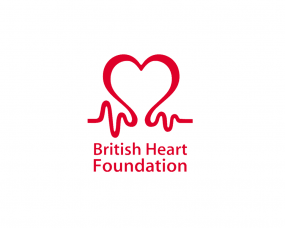
New figures have shown around one in every 250 people in the East of England have a potentially deadly inherited condition.
The findings from the British Heart Foundation show that the majority of people with familial hypercholesterolaemia (FH), an inherited high cholesterol condition, are ‘needlessly undiagnosed’.
The research suggests that FH affects around 24,500 people in the East of England and is more common than type one diabetes in children, which affects around one in 500 children. In the UK the total number of people with FH is around 250,000.
FH causes abnormally high levels of cholesterol in a person’s blood, meaning that otherwise healthy individuals are at a much greater risk of having a heart attack at a young age. Without treatment, people with FH can die prematurely in their 20s, 30s or 40s. Each child of a parent who has FH has a 50 percent chance of inheriting the condition.
Early treatment with statins for people with FH can bring someone’s life expectancy back to that of someone without the condition. However, the BHF warns that people are needlessly dying because the majority of people aren’t diagnosed and treated for the condition.
Thirty years of BHF research discovered one of the faulty genes responsible for the majority of FH cases, prompting NICE to recommend genetic testing for immediate family members of those affected. Pilot projects funded by the charity have shown that cascade genetic testing services are highly cost effective and have identified over 2,000 people with the condition to date. But access to the test is a postcode lottery across the UK.
Recent BHF estimates have shown that implementing cascade testing could save the NHS around £3 million per year as a result of avoided heart attacks, strokes and other cardiovascular events.
Catherine Kelly, Director for Prevention, Survival and Support for the BHF, said: “Our research has meant that we are now able to diagnose people with FH and prevent them from a potentially sudden and unexpected death at a young age.
“The generous donations of our supporters has funded the science behind breakthroughs for this condition and now we know the genes responsible. However the majority of people remain undiagnosed and despite cascade testing proving to be a highly cost-effective and efficient way of saving lives, services across the UK are patchy.
“If we are to avoid sudden and unexpected deaths from FH, we need to ensure that everyone at risk has access to these tests.”
Professor Steve Humphries, who, over a 30 year-long BHF funded research career, has made many discoveries about the genetic causes of FH in patients in the UK said: " I am so pleased that the research we have carried out has finally paid off and the knowledge is now being used by BHF nurses to test children and other close relatives of FH patients so we can find those who have inherited the family faulty gene.
“They can then be given advice to adopt a healthy lifestyle and of course be offered statin therapy to lower their cholesterol so they can expect to live a life free of early heart disease."
Since 2010 the BHF has invested over £2 million towards its ground-breaking genetic testing programme for familial hypercholesterolaemia (FH). This includes the funding of 27 FH nurses across 12 sites in England and Scotland and a pilot project in Wales which has since been sustained by the All Wales Genetics service. This life saving work has resulted in more than 2,000 people being diagnosed with FH and commenced on appropriate treatment.
For information and advice about FH and other inherited heart conditions, visit www.bhf.org.uk/unexpected.















